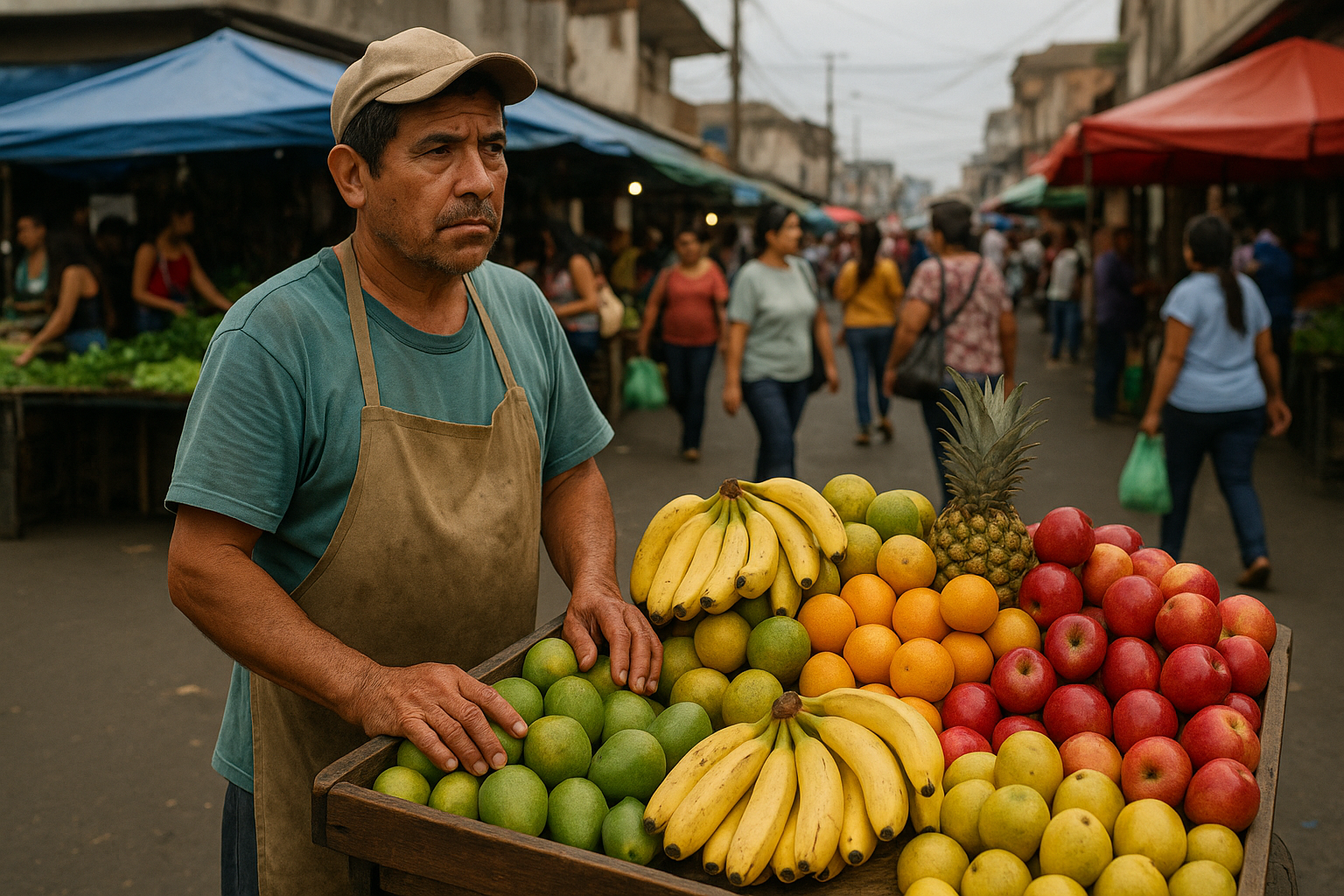Informal Yet Essential: Why Half of Latin America’s Workforce Remains Unprotected
The World Bank’s report “(In)Formalizing Jobs in Latin America and the Caribbean” reveals that nearly half of the region’s workforce remains trapped in informality due to structural weaknesses, high labor costs, and mistrust in institutions. It calls for reducing costs, strengthening portable social protections, and boosting productivity to break this cycle and build a fairer, more resilient labor market.

The report “(In)Formalizing Jobs in Latin America and the Caribbean,” prepared by the World Bank in collaboration with regional research institutes, paints a striking picture of the labor market across the region. Despite decades of reform, informality persists as the defining feature of employment, affecting nearly half of all workers. It is not confined to the margins but lies at the very core of economic life, shaping the conditions of street vendors, domestic workers, construction laborers, small entrepreneurs, and even formally employed individuals whose contracts fail to comply with the law. This is not a temporary phase of underdevelopment, the report stresses, but a deeply entrenched equilibrium maintained by structural, institutional, and behavioral factors.
Structural Weaknesses and Institutional Burdens
The forces that sustain informality run deep. Structural weaknesses include sluggish productivity growth, weak human capital, and limited technological access, which prevent firms from scaling up into competitive enterprises capable of offering formal jobs. Large portions of the workforce lack the skills demanded by modern industries, keeping them in low-productivity occupations. Institutional burdens exacerbate these problems. High non-wage labor costs, rigid labor regulations, and fragmented tax systems discourage firms from entering or remaining in the formal economy. Many small businesses face complex reporting requirements and multiple layers of bureaucracy that make informality a rational choice. Added to this is the behavioral dimension: mistrust in state institutions and skepticism about the actual value of formal social protection. For countless workers, the deductions and taxes appear heavier than the benefits, which often seem unreliable or inaccessible.
The Varied Faces of Informality
A notable contribution of the study is its insistence that informality is not monolithic. It appears in diverse forms, from “voluntary” informality, where firms and workers choose to remain outside formal systems after weighing costs and benefits, to “involuntary” informality, where lack of decent opportunities leaves no alternative. Vulnerable groups bear the brunt of this reality. Women, often tied to domestic responsibilities, are concentrated in household service and part-time informal jobs that lack protections. Young people struggle to secure their first foothold in formal labor markets, cycling between unemployment and precarious informal work. Migrants, many displaced by economic crises, frequently accept insecure jobs to survive. The data, illustrated through figures in the report, reveal stark national contrasts: while informality rates in larger economies such as Brazil and Mexico hover around 40 to 45 percent, Central American nations surpass 60 percent, with rural and border regions experiencing even higher levels.
Pandemic Shocks and the Digital Divide
The COVID-19 crisis threw these vulnerabilities into sharp relief. Informal workers were among the hardest hit, losing income overnight during lockdowns and lacking any access to unemployment benefits or health protections. Governments scrambled to provide emergency support, but the exclusion of informal workers from official registries made delivery uneven and insufficient. At the same time, the crisis accelerated digital transformation. Online platforms opened new job opportunities but often replicated the characteristics of informality: gig workers remained outside contributory systems, lacking protections and collective bargaining power. The pandemic underscored both the fragility of informal employment and the urgent need to rethink the region’s social protection architecture.
Building a New Social Contract
The policy agenda laid out in the report revolves around rebalancing incentives and benefits to reshape the calculus of workers and firms. Reducing the costs of formality is a first priority, achievable through streamlined regulations, simplified tax regimes, and labor codes that provide protections without overwhelming employers. Brazil’s “Simples Nacional,” which unified multiple taxes for small businesses, and Uruguay’s gradual incorporation of informal workers into contributory systems, are cited as promising models. The second priority is expanding the benefits of formalization. Stronger social protection, particularly portable benefits that can move with workers across different jobs and sectors, would align with the region’s increasingly fragmented labor markets. The third priority is fostering productivity growth by investing in education, skills, innovation, and infrastructure, enabling firms to expand and generate stable, higher-quality employment. Yet the authors caution against simplistic fixes. Heavy-handed enforcement, such as aggressive labor inspections, may drive firms further underground without incentives to comply. Similarly, universal social protection systems, while essential, must be carefully designed to avoid fiscal strains or unintended disincentives to formalize.
The report concludes with a call for a bold rethinking of the social contract. Informality, it argues, is not merely an economic inefficiency but a question of fairness, resilience, and cohesion. Tackling it requires more than piecemeal reforms: it demands trust between workers, firms, and governments, and a commitment to ensuring that formalization brings genuine rewards. Without such efforts, millions will remain trapped in precarious conditions, excluded from protections and opportunities that formal employment should guarantee. For Latin America and the Caribbean, confronting informality is not just about economic growth; it is about safeguarding social stability and democratic legitimacy for the future.
- READ MORE ON:
- World Bank
- labor market
- non-wage labor costs
- Latin America
- FIRST PUBLISHED IN:
- Devdiscourse
ALSO READ
World Bank: Thailand Can Turn Climate Risks into Green Growth Opportunities
Sarawak Partners with World Bank to Reform SOEs and Strengthen Governance
World Bank Hails Malaysia’s GovTech Push as Key to High-Income Future
Uganda’s Economy Expands, World Bank Calls for Stronger Domestic Revenues
World Bank Boosts Costa Rica's Fiscal Efficiency










